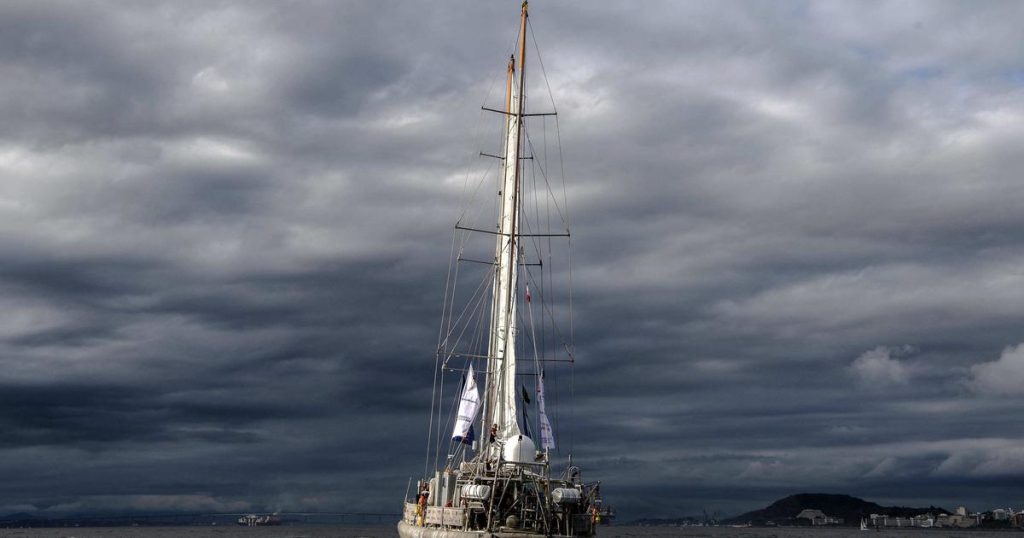
Sailboat Tara is on its way back after two years of microorganism harvesting
The French sailing ship Tara has dropped anchor in Senegal before it can begin its return to Europe and has completed nearly two years of navigation in the South Atlantic with the aim of studying marine microorganisms and their key role in the ocean ecosystem.
Since launching on December 12, 2020 from its main port in Lorient (western France), the laboratory sailboat designed by explorer Jean-Louis Etienne in the 1980s has covered about 38,000 miles (about 70,000 km), mobilized Chile, reached the Antarctic border in the Weddell Sea and re-crossed the ocean. to reach the coast of West Africa.
Read alsoA strange lab ship in the arctic, the crazy project of the Tara Foundation
With its six sailors and a regularly renewed team of many scientists of all nationalities, the expedition called Microbiomes took samples to help understand the unknown functioning of microorganisms, actors largely invisible to the naked eye but essential, and their interactions with microorganisms. Climate and pollution.
Microorganisms (viruses, bacteria, phytoplankton, zooplankton, larvae, etc.) account for two thirds of marine biomass. “We take water from the surface or from the depths, which we filter in different volumes, and this allows us to access these different communities of plankton and microbiome.Samuel Chavron explained in the Dakar port Saturday, a researcher at Tara Ocean, the French scientific organization working on ocean conservation that designed the mission.
Another topic of study: plastic pollution: “That’s why we collected a lot of plastics, micro, micro and nanoplastics, during the whole missionIn the African part, the expedition, with which 42 research institutes from all over the world are connected, was particularly interested in rivers such as the Congo or the Gambia, their impact on biodiversity and microplastic pollution.
“We pollute a lot»
The mission also aims to educate and raise public awareness of ocean issues during its downtime and to serve as political advocacy. “We must create a Marshall Plan for environmental transition around the worldThis was stated by the General Manager of Tara Ocean, Romain Troblet.We see that we are reaching the limits of everything. We fish too much, the ecosystem explains: There has been no grouper (white grouper) here for a few years. We pollute a lot, you only need to see the port of Dakar to understandI got upset.
Senegal, where the 36-meter dhow arrived on Monday, forms the last sequence dedicated to science and awareness of the ocean issue before returning via Lisbon and arriving at Lorient scheduled for mid-October. Between September 11 and 19, the mission will be on the Casamance River (southern Senegal), a spokesperson for Tara Ossian said.
Sampling in Senegalese waters,”It allows us to know what was there at the time, what fish are currently in the waters of Senegal that cannot migrate, and what they feed onBey Cheikh Mbaye, the Senegalese oceanographer, rejoiced. He lamented the lack of means and data in Senegalese research institutes.Tara’s mission lets you fill in the blanks“, anticipation.

“Organizer. Social media geek. General communicator. Bacon scholar. Proud pop culture trailblazer.”
